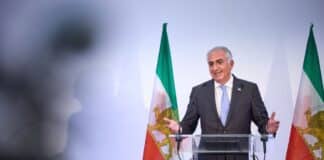During a heated segment on The View, co-host Whoopi Goldberg drew backlash after claiming that the experience of black Americans in the United States is equivalent to life under Iran’s brutal authoritarian regime. The comments came amid a discussion on human rights abuses in Iran, including the execution of gay individuals and the oppression of women.
Co-host Alyssa Farah initiated the topic by describing the extreme conditions in Iran, where homosexuality is punishable by death and women face violent punishment for violating strict dress codes. “They literally throw gay people off buildings,” Farah stated, highlighting Iran’s systemic brutality.
Goldberg quickly dismissed Farah’s comparison, asserting that similar violence occurs in the United States. “I’m sorry, they used to just keep hanging black people. It is the same,” Goldberg said. She also added, “The U.S. is known to tie gay folks to the car,” referring to isolated hate crimes in America’s past.
Farah challenged the statement, noting that the conditions in Tehran today cannot be reasonably equated with modern American society. She emphasized that in Iran, simply wearing a skirt and showing hair could result in severe punishment. Goldberg responded, “Not if you’re black,” sparking applause from the studio audience.
The exchange intensified when Goldberg argued that black Americans live under constant threat, questioning if their children will be harmed “because they’re running through somebody’s neighborhood.” She acknowledged the U.S. as “the greatest country in the world” but insisted that systemic dangers remain for minorities.
Farah countered, “I think it’s important we remember there are places much darker than this country,” referencing the totalitarian regime in Iran. Goldberg replied, “Not everyone feels that way,” and pointed out that black Americans only gained voting rights in the 1960s.
Critics immediately responded to Goldberg’s remarks, accusing her of equating historical and ongoing racial issues in the U.S. with the theocratic oppression of Iran. The backlash underscores the broader concern over relativizing global human rights abuses by drawing false moral equivalences.





